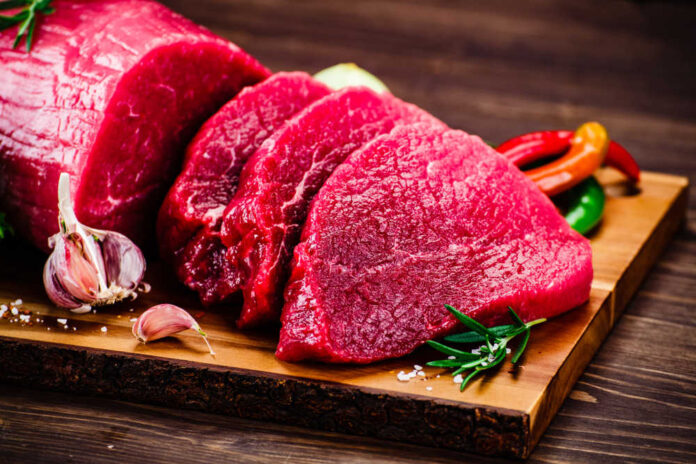
Red meat is a tasty and nutritious part of many people’s diets. There are many different types of red meat, including steak, pork, lamb, and venison.
Red meat can be a delicious source of protein, iron, and other nutrients. However, there has been growing concern about the potential health risks associated with red meat consumption.
Does Eating Meat Cause Cancer?
In 2015, the International Agency for Research on Cancer (IARC), a division of the World Health Organization, released its findings after assessing more than 800 epidemiological studies investigating the link between meat and cancer.
Their collected evidence suggested a strong association between high meat consumption and colorectal cancer and pancreatic and prostate cancer.
Processed meat (hot dogs, ham, bacon, pepperoni, jerky, etc.) was classified by the IARC as a Group 1 carcinogen, meaning that there is sufficient evidence that the consumption of processed meat contributes to the development of cancer.
Red meat was classified as a Group 2A carcinogen, “probably carcinogenic to humans,” meaning that there is limited evidence that it causes cancer, but not enough to rule out chance, bias, or other explanations for the correlation.
How Can Meat Cause Health Problems?
A plausible explanation for how red and processed meat may contribute to cancer development is through their high content of heme iron.
Heme iron is a type of iron derived from hemoglobin, the protein responsible for transporting oxygen in red blood cells. Heme iron is found in higher red and processed meats concentrations than in other food sources.
When your digestive processes break down your food, the heme iron may act as a catalyst for forming harmful compounds known as free radicals or reactive oxygen species. These free radicals can accumulate and damage cells and tissues, leading to inflammation and a higher risk of chronic diseases, such as heart disease and cancer.
Should You Avoid Red Meat Completely?
It’s recommended that you avoid or severely limit your consumption of processed meats to reduce your risk of developing cancer, heart disease, and other chronic illnesses; moderating your consumption of red meat is also probably a good idea.
If you choose to eat red meat, make sure to balance your meals with plenty of fruits and vegetables. The antioxidants found in plant-based foods neutralize the reactive oxygen species and help to counteract the damage caused by free radicals.
High-temperature cooking methods, such as grilling, burning, and smoking, can also increase the formation of harmful compounds in meat. So try to find satisfying recipes that don’t require cooking at high temperatures.
Making informed choices about what you eat can help keep yourself healthy and free of illness.






















